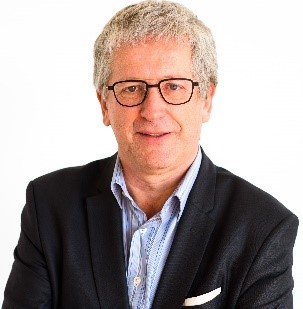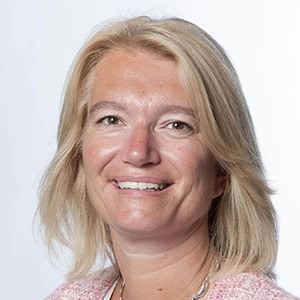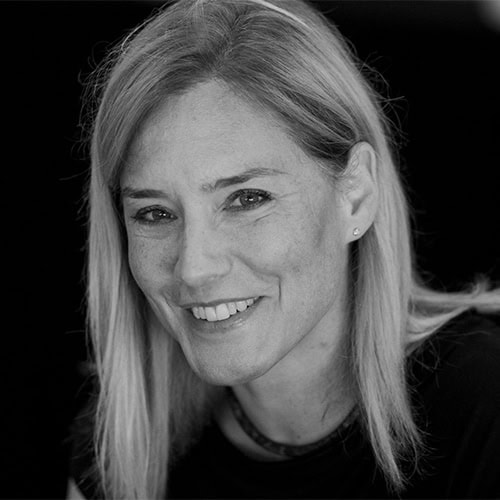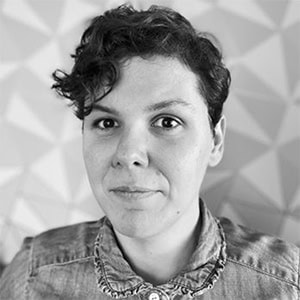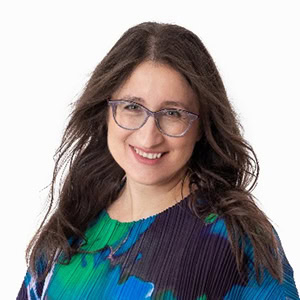Join us for our much-anticipated 5th DiCE CRC Screening Summit, “Scaling Up Colorectal Cancer Screening in Europe: Aiming for 90% Coverage by 2025.” This essential event will tackle the pressing challenge of early detection and prevention of colorectal cancer, a major health burden in Europe.
By collaborating with experts, healthcare professionals, and policymakers, we aim to improve screening rates and save lives, striving for 90% coverage by 2025. Join us for valuable insights, innovative strategies, and actionable steps to empower your communities.
Together, we can enhance colorectal cancer screening and the health of millions across Europe. Let’s work towards comprehensive and accessible screening programs for a healthier future.

Agenda
| 09.00 | Welcome | Eric Van Cutsem, Digestive Cancers Europe Co-Founder, Belgium |
Prof. Eric Van Cutsem Eric Van Cutsem, MD, PhD, is full professor at University of Leuven (KULeuven) and the University Hospitals Gasthuisberg, Belgium and Division Head of Digestive Oncology and since October 2023 Professor Emeritus with tasks at the University of Leuven, amongst which Board member of the Faculty of Medicine of KULeuven. He is a member of the Belgian Royal Academy of Medicine and president of the Belgian
Foundation against Cancer (Stichting tegen Kanker; Fondation contre le Cancer). He published extensively: >740 articles in PubMed and more than 1600 according Thomson Web of Science, leading to > 120.000 citations and an H-factor of 150. He is worldwide in the top 1% of highest cited researchers in the field of Clinical Medicine, is amongst the highest Cited researchers at the University of Leuven and in the top 3 most cited Medical Scientists in Belgium. His research interests are various aspects of Gastrointestinal and Digestive cancers (colorectal, gastric, pancreas, bile duct, esophageal cancer and neuroendocrine tumors). He serves on many industry advisory boards for new anti-cancer drugs and treatment modalities and Independent Data Monitoring Committee of clinical trials. He is known as world wide clinical expert in Gastrointestinal Oncology and consults for patients across the globe and featered in Belgium in the media program: Topdokters. He co-founded and is chair of ESMO/World Congress on Gastrointestinal Cancer in Barcelona, Spain and continues to chair ESMO GI. He serves/served on the board or key committee of ESMO (European Society Medical Oncology; executive board, several committees), UEG (United European Gastroenterology; educational committee, public affairs committee, scientific committee), ASCO (American Society of Clinical Oncology; program committee, international affairs committee), ENET (European NeuroEndocrine Society; advisory board, registry), EORTC (European Organisation Research Treatment Cancer; executive board, chair of GI Cancer group), ECO (European Cancer Organisation; program committee), ESDO (European Society Digestive Oncology; president), ESO (European School of Oncology; Scientific council) and of patient advocacy groups EuropaColon (medical director) and Digestive Cancers Europe (DICE; co-founder, executive board), the Foundation Engie (CSR) France & Belgium. He has been appointed from 2025 onwards as member of Scientific Council of IARC /WHO (International Agency for Research on Cancer/ World Health Organisation). He was chairman of the governmental colon cancer prevention task force in Flanders, Belgium, was/is in Belgian active as president and treasurer of Belgian Group Digestive Oncology and as president/vice-president of Familial Polyposis Association (FAPA). He is/was member of the Scientific Advisory board for different international hospitals/cancer centers: Institut National du Cancer (INCA), Toulouse & Paris, France; University of Ulm & Leipzig, Germany; Humanitas Hospital, Milan, Italy & Avignon, France and is member of the board of directors of the regional hospital of Halle (vice-president since 09-2023) and member of the board of CUROZ, network of hospitals in East-Flanders & Vlaams Brabant, Belgium. | ||
| Lieve Wierinck, Digestive Cancers Europe Chair of the Board, Belgium | ||
Lieve Wierinck Along with being a pharmacist and a former cancer patient, Lieve’s career in politics means she applies her medical, patient and policy expertise to her work as Chair of the DiCE Board. Lieve Wierinck was a Member of the European Parliament (ALDE – Liberal Democrats) until 2019. She was a member of the Committee on Industry, Research and Energy (ITRE). In that capacity, she strove to improve the innovation and competitiveness of Europe. She was also a member of the informal groups “MEPs Against Cancer” (MAC), and the MEP Interest Group on the Patient Access Partnership (PACT). Earlier this year, Lieve Wierinck received the Parliament Magazine Award for the Best Health MEP. Lieve was a member of the Belgian Parliament from 2011 to 2014. She was Chair of the National Women’s Group of the Flemish liberal party (Open VLD) from 2014 till 2017. She was a member of the Municipal Council of Zaventem from 1994 to 2018, and also the Chair of the Local Public Welfare Office (OCMW) for twelve years. She also worked as a pharmacist for 30 years in Zaventem. She is a colon cancer survivor. | ||
| 09.13 | Introduction | Tomislav Sokol, Member of the European Parliament (MEP), Group of the European People's Party (Christian Democrats), Hrvatska Demokratska Zajednica (HDZ), Croatia |
Tomislav Sokol Tomislav Sokol was born in Zagreb in 1982. He obtained his first degree in law at the Faculty of Law, University of Zagreb, in 2006, magna cum laude. He then obtained a Masters of Law (LL.M.) specialising in European Union Law at the Katholieke Universiteit Leuven (KUL), Belgium, in 2009, magna cum laude. He defended his PhD at KUL, dealing with free movement of cross-border health care services in the EU and its impact on national health insurance systems in 2014. He was an Assistant Minister in the Ministry of Science and Education in 2017, after which he became a Member of the Croatian Parliament. He was a Member of the Croatian Parliament until July 2019, when he became a Member of the European Parliament. He is EPP Coordinator in Committee on Public Health (SANT), Member of the Committee on the Internal Market and Consumer Protection (IMCO), Substitute Member of the Committee on the Environment, Public Health and Food Safety (ENVI) and Committee on Constitutional Affairs (AFCO) in the European Parliament. Mr. Sokol is main Rapporteur for the European Health Data Space and EPP Shadow Rapporteur for Pharmaceutical legislation (Regulation). So far, he has published around 20 papers and 1 book on issues concerning EU law, including several articles in European journals, such as the European Law Review and the European Law Journal. He has presented papers at many international conferences and worked on different research projects. Currently, he is a Senior Lecturer at the Zagreb School of Economics and Management where he has taught Introduction to European Union and Principles of Law courses since the academic year 2010/2011. He is also an assistant professor at the Catholic University of Croatia where he has taught since the academic year 2016/2017. His areas of professional interest include the law of the European common market, EU health law, competition law, International and European social law and International and European trade law. | ||
| Vlad Vasile-Voiculescu, Member of the European Parliament (MEP), Renew Europe Group, Uniunea Salvați România (Romania) | ||
Vlad Vasile-Voiculescu Vlad Vasile-Voiculescu, Member of the European Parliament (MEP), Renew Europe Group, Uniunea Salvați România (Romania) (born 6 September 1983 in Brănești, Romania) is a Romanian politician, social entrepreneur, and current Member of the European Parliament (MEP) since July 2024. He has twice served as Romania’s Minister of Health (2016–2017 and 2020–2021). | ||
| 09.30 | Panel 1: Policy and Advocacy: Expanding Access and Shaping the Future of Screening | Iris Lansdorp-Vogelaar, Professor at the Department of Public Health of Erasmus Medical Center, Rotterdam, Netherlands |
Iris Lansdorp-Vogelaar Iris Lansdorp-Vogelaar is Full Professor at the Department of Public Health of Erasmus Medical Center (MC) and head of the research section on evaluation of screening for gastrointestinal disorders. She has been responsible for the management and development of the well-established Microsimulation Screening Analysis (MISCAN) models for the evaluation of cancer screening. She operates at the forefront of cancer screening worldwide, evidencing from 80 publications in top clinical journals in the past 5 years. Her work directly influenced cancer screening recommendations from the BMJ Rapid Recommendations Panel, American Cancer Society, and US Preventive Services Task Force, as well as US Medicare reimbursement decisions on CT colonography and stool DNA screening. In 2020, she received a career development award for her research contributing to the successful implementation of risk-based cancer screening | ||
| 09.40 | Panel 1 discussion | Urška Ivanuš, Director of the Slovenian national cervical cancer screening programme and head of Department for cancer screening at the Institute of Oncology Ljubljana, Slovenia |
| Mārcis Leja, Professor of Medicine, Director of the Institute of Clinical and Preventive Medicine, University of Latvia, Head of the Dept. of Research, Riga East University Hospital, Latvia | ||
Mārcis Leja Mārcis Leja is a Professor of Medicine at the Faculty of Medicine and Director of the Institute of Clinical and Preventive Medicine, University of Latvia and a consulting gastroenterologist at the Digestive Diseases Centre, Riga, Latvia. He has served as a member of the European Cancer Mission Board from 2019 to 2021; currently is a member of the Research Committee of United European Gastroenterology (UEG) and the European Helicobacter and Microbiota Study Group (EHMSG) as well as a fellow of Latvia Academy of Science and American Gastroenterological Association (AGA). His main research interests include screening, prevention and early detection of cancer, in particular - gastrointestinal cancer. The related interests of Dr Leja include the use of volatile organic marker (VOC) diagnostic concept in gastrointestinal cancer detection, the role of microbiota in health and disease as well as the use of large data and AI for prevention and early detection. Dr Leja has developed an extensive collaboration in the field of early gastric cancer detection and prevention in the EU and beyond involving countries like U.K., Ukraine, Belarus, Russia, Kazakhstan, Kirgizstan, the US (National Cancer institute, Vanderbilt University), Brazil, Colombia, Chile, Taiwan and China. Dr Leja is author of more than 200 research publications (of those at least 140 Scopus or WoSCC), 6 book chapters. | ||
| Agnieszka Kinsner-Ovaskainen, European Commission, Joint Research Centre (JRC), Ispra, Italy | ||
Agnieszka Kinsner-Ovaskainen Dr. Agnieszka Kinsner-Ovaskainen is a scientific officer at the European Commission Joint Research Centre, within the Directorate for Health and Food. Agnieszka graduated as a medical doctor from the Medical University of Warsaw, Poland, and obtained her PhD in Life Sciences from University of Konstanz, Germany. She also holds a Mater in Public Health the London School of Hygiene and Tropical Medicine, UK. She currently works in the team coordinating the European Commission Initiatives on Cancer. By developing evidence-based guidelines for screening and diagnosis of cancer, as well as a voluntary quality assurance schemes for cancer services, the EC Initiatives on Breast, Colorectal and Cervical cancer aim to provide essential levels of quality care equally accessible across Europe. | ||
| 10.15 | BREAK | |
| 10.25 | Panel 2: Personalised Screening: Tailoring Interventions to Risk | Carlo Senore, Piedmont Region Cancer Prevention Centre, University Hospital, Città della Salute e della Scienza, Italy |
Carlo Senore Carlo Senore has a medical degree from the University of Turin. He also completed his post-graduate degree there in Internal Medicine. Following this he gained a Master of Science, Epidemiology from McGill University in Montreal. He currently runs the Piedmont Region Screening Program at the region’s university hospital ‘CPO Piemonte; AOU Città della Salute e della Scienza’ in Turin. This is following extensive experience in public health particularly related to cancer screening programs. Since 2004 he has been a member of the faculty at the University of Turin, Medical School lecturing in evidence based medicine as well as being a part of the post-doctoral School of Oncology there. His research fields include:
| ||
| 10.35 | Panel 2 discussion | Monika Ferlitsch, Specialist in Internal Medicine Additional Specialist in Gastroenterology and Hepatology, Vienne, Austria |
Monika Ferlitsch Head of Department of Internal Medicine with Gastroenterology and Geriatrics in Klinik Floridsdorf in Vienna and Medical University Vienna. Monika Ferlitsch is a specialist of Internal Medicine and Gastroenterology and Hepatology, Head of Department of Internal Medicine with Gastroenterology and Geriatrics in Klinik Floridsdorf in Vienna and chair of quality improvement committee of European Society of Gastrointestinal Endoscopy (ESGE). Further she leads the quality certificate of screening colonoscopy initiative in Austria in 2007 and is dedicated to improve the quality of screening colonoscopy and colorectal cancer screening. | ||
| David Weller, University of Edinburgh, Scotland | ||
David Weller David Weller’s cancer research career began with PhD studies in Adelaide and Nottingham on bowel cancer screening. He later led the evaluation of the UK pilot of bowel cancer screening (from 2000-2003), and has published extensively on roles for primary care in cancer screening, early diagnosis, and survivorship. His interests include diagnostic pathways (for example his work leading the CRUK’s International Benchmarking Partnership ‘Routes to Diagnosis’ module, which provided insights on the UK’s cancer survival rates in comparison to other countries), and strategies to improve cancer screening outcomes. He currently leads a CRUK programme grant examining risk-based screening for bowel cancer. He has served on a range of governmental and research committees including the National Screening Research and Innovation Group, the Scottish Expert Advisory Group (SEAG) for targeted lung cancer screening, the SG Primary Care and Cancer Group and the Scottish Bowel Screening Monitoring and Evaluation Group and the CRUK/NCRI Primary Care Clinical Studies Group. In 2007 he established the Cancer and Primary Care International Research Network (Ca-PRI www.ca-pri.com), which holds annual cancer research conferences in the UK, Europe, North America and Australia. David has also undertaken work in low- and middle-income countries examining, for example, improved screening and diagnosis for lung, cervical and oral cancers. As Co-Director of the Centre for Population Health Sciences within the Usher Institute, University of Edinburgh, he undertakes population-level cancer research, and is committed, through his extensive PhD supervision experience, to developing cancer and primary care researchers of the future. David works part-time as a GP at Mackenzie Medical Centre in central Edinburgh, and holds the James Mackenzie Chair of General Practice. | ||
| Paolo Giorgi Rossi, Director of the Complex Structure for Epidemiology and Risk Communication Service, Reggio Emilia, Italy | ||
Paolo Giorgi Rossi Paolo Giorgi Rossi obtained an MSc in Molecular Biology in 1994 and a Ph.D. in Cellular and Animal Biology in 1998 at the University of Pavia (Pavia, Italy). Since 1998, he has been working at the Agency for Public Health of Lazio, Rome, Italy, where he directed the Health Technology Assessment Service from 2006 to 2012. Now he is the director of the Epidemiology Service in the Reggio Emilia Local Health Authority and Research Hospital (AUSL – IRCCS). His principal interest is the evaluation of Public Health interventions and particularly cancer screening. He is the principal investigator of several independent epidemiological studies and trials on screening. He is the author or co-author of about 500 publications indexed in PubMed and more than 50 monographs and book chapters. He has been the president of the Italian Cervical Cancer Screening Group, the scientific society of cervical cancer screening in Italy and a member of the coordinating committee of the Italian Mammographic Screening Group. He is a member of the European Commission Initiatives on Breast Cancer, Colorectal Cancer and Cervical Cancer for the development of cancer screening Guidelines in Europe. He also co-lead the process of the Italian adolopment of the European breast cancer screening guidelines. | ||
| 11.15 | Panel 3: Public Health and Awareness: Mobilizing Communities for Early Detection | Isabel Mosquera-Metcalfe, Scientist, Early Detection Prevention and Infections, IARC, France |
Isabel Mosquera-Metcalfe Scientist at the Early Detection, Prevention and Infections Branch, International Agency for Research on Cancer (IARC/WHO). For the last six years I have been studying social inequalities in cancer screening, mainly in Latin America, the Caribbean, and Africa. My most recent achievement is coordinating the development of a web-based tool that matches barriers along the cancer continuum organization and evidence-based interventions to overcome them. This tool (INTERVENER) will be made publicly available in the coming months. I am coordinating the piloting of two implementation research projects on cervical cancer control among vulnerable women in European countries. | ||
| Panel 3 discussion | Zorana Maravic, CEO Digestive Cancers Europe, Belgium | |
Zorana Maravic A part of Europacolon and now DiCE since 2012, Zorana has always worked closely with our Full Members and Associate Members. With grace, poise and calm, she is working to help Members’ organisations and DiCE grow. As CEO, Zorana continues her commitment to DiCE taking on the management of the organisation and ensuring the delivery of its missions and goals. In her past role as Director of Operations she was responsible for the co-ordination and support of Member groups, as well as strengthening the network, through establishing relationships with new organisations. During this she has proven her capacity to deliver successfully. Key projects have included:
Zorana also acts as a public speaker on topics such as patient support, biosimilars and CRC screening. From 2016 until 2018, Zorana served as a Board Member of EuropaColon. Before working in the Not-For-Profit sector, Zorana worked for 10 years in the pharmaceutical industry, primarily in sales and marketing of innovative oncology drugs as well as on oncology clinical trials. She holds a degree in molecular biology from the University of Belgrade, Serbia. In 2017, at the University of Sheffield, UK she gained an Executive MBA in Health Management. | ||
| Yasemin Hirst, Senior Research Fellow, University of Central Lancashire, UK | ||
Yasemin Hirst Yasemin Hirst is a behavioural scientist and a chartered Health Psychologist currently based at the Applied Health Research Hub, University of Central Lancashire as a Senior Research Fellow. Her research interests have been focused on developing a better understanding of the inequalities in cancer outcomes specifically improving the adoption of cancer risk-reducing behaviours such as cancer screening uptake and promoting earlier presentation in primary care among individuals who are experiencing symptoms potentially associated with cancer. Currently, she is working on improving community-driven approaches to improving bowel cancer screening uptake with a focus on reducing inequalities among under-represented populations such as ethnic minorities, people with disabilities and mental health conditions. | ||
| Metka Glas, EuropaColon Slovenia | ||
Metka Glas A Caregiver Coach, Certified Team Coach, and Certified Reinvention Practitioner with life experience as the caregiver to her dad more than 15 years ago, joined the EuropaColon Slovenia at the beginning of this year. With background in marketing and leading teams, she manages psychosocial and other programs for patients with digestive cancers, organizes and runs programs for caregivers, moderates online lectures with health professionals, manages the association's website, organizes and runs the Beyond the Horizon events - Sailing through the Challenges of Cancer, and many other activities. Metka is a passionate advocate for patients and families and believes in a holistic integrated approach to digestive cancer treatment through collaboration, open communication, teamwork and genuine relationships based on trust and respect among all key stakeholders. | ||
| 12.00 | Early-Onset Colorectal Cancer and the Gaps in Screening Programs | Jan Bornschein, Honorary Senior Clinical Lecturer, Medical Research Council Translational Immune Discovery Unit, MRC Weatherall Institute of Molecular Medicine, University of Oxford, UK |
| 12.20 | The role of patient organisations and citizen groups in shaping the way forward | Marianna Vitaloni, Medical and Scientific Project Manager, Digestive Cancers Europe, Belgium |
Marianna Vitaloni Dr. Marianna Vitaloni, Medical & Scientific Project Manager, DiCE Marianna is a patient advocate and, at DiCE, co-ordinates medical and scientific initiatives using her multidisciplinary experience to build the bridge between science and global health. She has been passionate about human health and wellbeing from the beginning of her professional career. She laureated in Medical and Pharmaceutical Biotechnology at the University of Pavia (Italy) where she also obtained her PhD in Genetic and Human Pathology. During her research studies, a strong interest in public and global health drove her career towards international initiatives and projects aiming at improving human health. | ||
| 12.25 | Conclusion | Andrey Kovachev, Member of the European Parliament, Group of the European People's Party (Christian Democrats), Citizens for European Development of Bulgaria (Bulgaria) |
Andrey Kovachev Andrey Kovachev, Member of the European Parliament, Group of the European People's Party (Christian Democrats), Citizens for European Development of Bulgaria (Bulgaria) Andrey Kovatchev is a Bulgarian politician and Member of the European Parliament (MEP) from the European People's Party (EPP). Born on December 13, 1967, in Sofia, Bulgaria, he holds a degree in biology and a PhD in natural sciences. Since becoming an MEP in 2009, Kovatchev has focused on foreign affairs, human rights, and European integration, particularly in the Western Balkans. He is also committed to the preservation of historical memory and the promotion of EU unity. | ||
| Peter Liese, Member of the European Parliament, Group of the European People's Party (Christian Democrats), Christlich Demokratische Union Deutschlands (Germany) | ||
Peter Liese Member of the European Parliament, Group of the European People's Party (Christian Democrats), Christlich Demokratische Union Deutschlands (Germany) A German physician and member of the European People's Party, Peter Liese has been a Member of the European Parliament since 1994. He is a prominent health policy expert, specializing in environmental health, climate change, and medical research. Liese has been a key advocate for public health initiatives, playing a significant role in EU health committees and environmental policy development. | ||
| 12.30 | End | |
